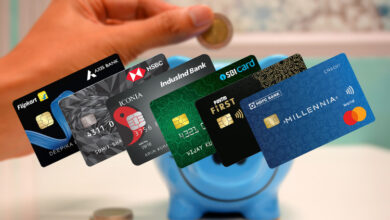Loans
How can I get 15000 personal loan?

- Check your credit score: Your credit score is one of the most important factors in determining your eligibility for a personal loan. Lenders will look at your credit score to determine your creditworthiness and the interest rate you’ll be offered. A good credit score is typically considered to be 700 or higher. If your credit score is lower, it may be more difficult to get approved for a personal loan, or you may be offered a higher interest rate.
- Shop around: Don’t just apply to the first lender you find. Shop around and compare interest rates, repayment terms, and other loan conditions from multiple lenders. You may find that one lender is offering a better deal than another, so it’s important to compare your options before making a decision.
- Consider your income: Your income is another important factor in getting approved for a personal loan. Lenders want to see that you have a stable source of income and that you’re able to repay the loan. Be prepared to provide documentation of your income, such as pay stubs or tax returns.
- Read the fine print: Make sure you understand the terms and conditions of the loan before you sign the contract. Be aware of any hidden fees, such as origination fees, that can add up over time.
- Apply online: Many lenders now offer online personal loans, which can make the application process faster and more convenient. You can often get a decision on your loan within minutes, and if approved, the funds can be deposited directly into your account.
- Use a cosigner: If you’re having trouble getting approved for a personal loan, you may consider applying with a cosigner. A cosigner is someone who agrees to be responsible for the loan if you’re unable to repay it. Having a cosigner can improve your chances of getting approved and may also help you get a lower interest rate.
- Choose a reputable lender: It’s important to choose a lender that is reputable and trustworthy. Check the lender’s reputation by reading reviews and checking with the Better Business Bureau (BBB). Avoid lenders that charge high fees or have hidden costs, as these can end up costing you more in the long run.
- Know your debt-to-income ratio: Your debt-to-income ratio is an important factor in determining your eligibility for a personal loan. This ratio is calculated by dividing your monthly debt obligations by your monthly income. Lenders typically look for a debt-to-income ratio of 40% or less when considering a personal loan.
- Consider the repayment term: The repayment term is the amount of time you have to repay the loan. Longer repayment terms may have lower monthly payments, but they also have higher overall interest costs. On the other hand, shorter repayment terms have higher monthly payments, but lower overall interest costs. Consider your budget and choose a repayment term that works for you.
- Make payments on time: It’s important to make your loan payments on time every month to avoid late fees and to maintain a good credit score. If you’re having trouble making your payments, reach out to your lender as soon as possible to discuss your options.
- Plan for your future: While a personal loan can be a great way to cover unexpected expenses or make a big purchase, it’s important to have a plan for paying it back. Make sure you’re able to afford the monthly payments, and consider setting up a budget or a savings plan to ensure that you’re prepared for any future expenses.
- Understand the interest rate: The interest rate is the cost of borrowing money and is expressed as a percentage of the loan amount. The interest rate on a personal loan can vary based on several factors, including your credit score, income, and the lender’s policies. Make sure you understand the interest rate you’ll be paying and how it will impact your monthly payments and the overall cost of the loan.
- Don’t be afraid to negotiate: If you’re offered a high interest rate or unfavorable loan terms, don’t be afraid to negotiate. Lenders may be willing to work with you to find a solution that meets your needs.
- Consider alternative options: Before applying for a personal loan, consider alternative options, such as using a credit card or borrowing from friends or family. While a personal loan can be a great option, it’s important to choose the best option for your financial situation.
- Keep your options open: If you’re not approved for a personal loan, don’t give up. Keep your options open and continue to improve your credit score by paying your bills on time and reducing your debt. With time, you may be able to get approved for a personal loan with better terms and a lower interest rate.






